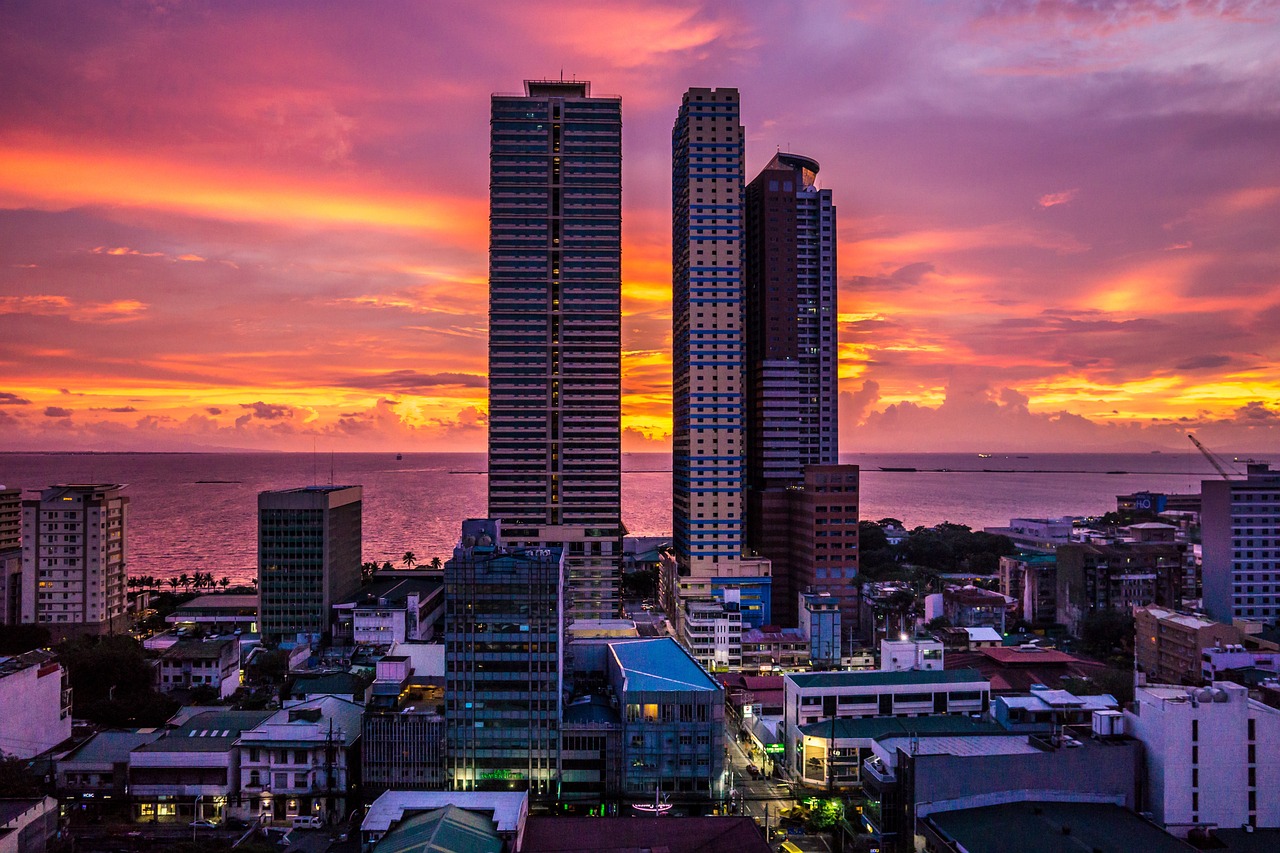Managing Finances and Payments while Working in the Philippines
The Philippines is a popular destination for expatriates and digital nomads looking for new opportunities. With its vibrant culture, beautiful landscapes, and low cost of living, it’s no wonder why many people choose to work in the Philippines. However, managing finances and payments in a foreign country can be challenging. In this article, we will provide a comprehensive guide on how to effectively manage your finances and payments while working in the Philippines.
Understanding the Philippine Currency
Before diving into managing finances and payments, it’s crucial to understand the Philippine currency. The official currency of the Philippines is the Philippine Peso (PHP). The currency is denoted by the symbol ₱ and is available in various denominations, including coins and banknotes. It’s essential to familiarize yourself with the different denominations and their corresponding values to avoid confusion during transactions.
- Coins: Coins in circulation include 1 centavo, 5 centavos, 10 centavos, 25 centavos, 1 peso, 5 pesos, and 10 pesos. These are commonly used for small purchases and transportation fares.
- Banknotes: Banknotes are available in denominations of 20 pesos, 50 pesos, 100 pesos, 200 pesos, 500 pesos, and 1,000 pesos. These are used for larger transactions and are widely accepted in most establishments.
- Exchange Rate: The exchange rate between the Philippine Peso and other major currencies fluctuates daily. It’s advisable to check the current exchange rate before making any financial transactions.
Opening a Bank Account
To effectively manage your finances in the Philippines, it’s recommended to open a local bank account. Having a local bank account provides convenience and security for receiving and managing your salary, making payments, and accessing various banking services.
- Choose a Bank: Research and compare different banks in the Philippines to find the one that best suits your needs. Some popular banks in the country include Banco de Oro (BDO), Metrobank, and Bank of the Philippine Islands (BPI).
- Requirements: Visit the chosen bank’s branch with the necessary documents, which usually include valid identification cards (passport or government-issued ID), proof of address, and proof of income or employment.
- Account Types: Banks offer various types of accounts, such as savings accounts, checking accounts, and time deposits. Choose the account type that aligns with your financial goals and needs.
- Online Banking: Most banks in the Philippines offer online banking services, allowing you to conveniently manage your finances, make payments, and monitor transactions from anywhere.
Managing Income and Expenses
Effectively managing your income and expenses is crucial for maintaining financial stability while working in the Philippines. Here are some tips to help you manage your finances effectively:
- Create a Budget: Start by creating a monthly budget that outlines your income, fixed expenses (rent, utilities), variable expenses (groceries, transportation), and savings goals. Stick to this budget as closely as possible.
- Track Your Expenses: Keep track of your daily expenses using a notebook, spreadsheet, or budgeting app. This will help you identify spending patterns and areas where you can cut back.
- Save for Emergencies: Set aside a portion of your income for emergency savings. Aim to have at least three to six months’ worth of living expenses saved up to cover unexpected events.
- Automate Bill Payments: Set up automatic payments for recurring bills to avoid late fees and ensure timely payments.
- Avoid Debt: Be cautious with credit card usage and loans. Only borrow what you can afford to repay, and strive to pay off outstanding debts as soon as possible.
Payment Methods in the Philippines
The Philippines offers a variety of payment methods to cater to different preferences and needs. Understanding these payment methods will help you navigate financial transactions more effectively:
- Cash: Cash is widely accepted in most establishments, especially small businesses and local markets. Always carry some cash with you for small purchases and transactions.
- Debit and Credit Cards: Major credit and debit cards, such as Visa and Mastercard, are widely accepted in larger establishments, hotels, and restaurants. However, it’s advisable to carry cash as a backup, as some smaller businesses may not accept cards.
- Mobile Payments: Mobile payment platforms like GCash and PayMaya have gained popularity in the Philippines. These platforms allow you to link your bank account and make payments or transfer money using your mobile phone.
- Online Banking: Most banks in the Philippines offer online banking services, allowing you to transfer funds, pay bills, and make online purchases securely.
Managing Taxes
As a working individual in the Philippines, it’s essential to understand and comply with the country’s tax regulations. Here are some key points to consider:
- Tax Identification Number (TIN): Obtain a Tax Identification Number (TIN) from the Bureau of Internal Revenue (BIR). This number is necessary for filing taxes and conducting financial transactions.
- Income Tax: Income tax rates in the Philippines are progressive, meaning the more you earn, the higher the tax rate. Consult with a tax professional or refer to the BIR’s website for the latest tax brackets and rates.
- Withholding Tax: If you are employed by a company, your employer will deduct the necessary taxes from your salary through the withholding tax system.
- Filing Taxes: If you have additional sources of income or are self-employed, you may need to file an annual income tax return. Consult with a tax professional to ensure compliance.
Philippines Image 1:

Managing Remittances
Remittances are a common practice for individuals working abroad, including those working in the Philippines. If you need to send money to your home country or receive money from abroad, consider the following options:
- Banks: Many banks in the Philippines offer remittance services, allowing you to send or receive money internationally. Research different banks to find the most cost-effective and reliable option.
- Money Transfer Services: Companies like Western Union and MoneyGram have branches throughout the Philippines, offering quick and convenient money transfer services.
- Online Money Transfer: Online platforms like PayPal and TransferWise provide secure and efficient ways to send and receive money internationally.
Investment Opportunities
If you have surplus funds and are looking to grow your wealth while working in the Philippines, consider exploring investment opportunities. Here are some popular investment options:
- Stock Market: The Philippine Stock Exchange (PSE) allows individuals to invest in publicly listed companies. It’s advisable to research and seek professional advice before venturing into stock market investments.
- Mutual Funds: Mutual funds pool funds from multiple investors to invest in a diversified portfolio of stocks, bonds, or other securities. This allows individuals with limited knowledge or capital to access professionally managed investments.
- Real Estate: Real estate has been a popular investment option in the Philippines. Consider investing in properties or real estate investment trusts (REITs) for potential long-term returns.
- Business Ventures: If you have an entrepreneurial spirit, starting a business in the Philippines can be a rewarding investment opportunity. Conduct thorough market research and seek professional guidance before starting a business.
Philippines Image 2:

Ensuring Financial Security
While working in the Philippines, it’s essential to prioritize financial security and protect yourself from potential risks. Here are some measures to consider:
- Insurance: Obtain health insurance and consider other types of insurance coverage, such as life insurance or property insurance, to protect yourself and your assets.
- Emergency Fund: Build an emergency fund to cover unexpected expenses or situations, such as medical emergencies or job loss.
- Secure Online Transactions: Be cautious when making online transactions and ensure that the websites or platforms you use are secure and reputable.
- Monitor Your Accounts: Regularly review your bank statements and financial transactions to detect any unauthorized activities.
Philippines Image 3:

Conclusion
Managing finances and payments while working in the Philippines requires careful planning, organization, and knowledge of the local financial landscape. By understanding the Philippine currency, opening a local bank account, effectively managing income and expenses, familiarizing yourself with payment methods, complying with tax regulations, managing remittances, exploring investment opportunities, and ensuring financial security, you can navigate the financial aspects of working in the Philippines with confidence.
References
– Banco de Oro (BDO): www.bdo.com.ph
– Metrobank: www.metrobank.com.ph
– Bank of the Philippine Islands (BPI): www.bpi.com.ph
– Bureau of Internal Revenue (BIR): www.bir.gov.ph
– Philippine Stock Exchange (PSE): www.pse.com.ph
– Western Union: www.westernunion.com
– MoneyGram: www.moneygram.com
– PayPal: www.paypal.com
– TransferWise: www.transferwise.com


